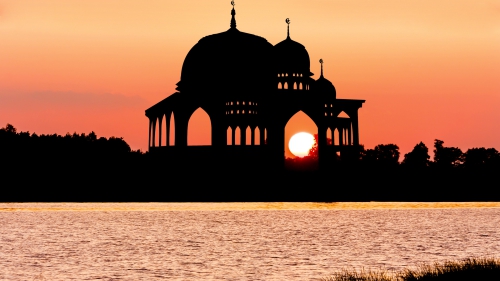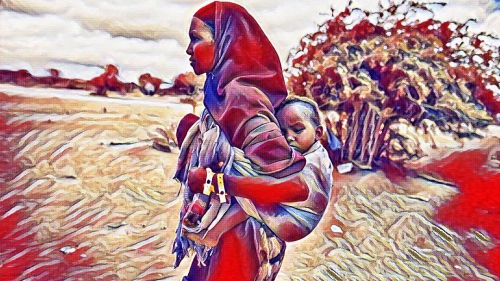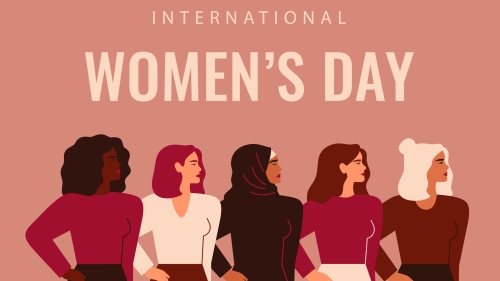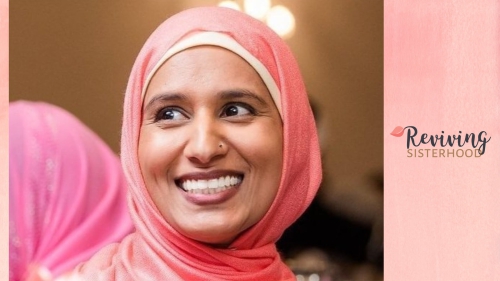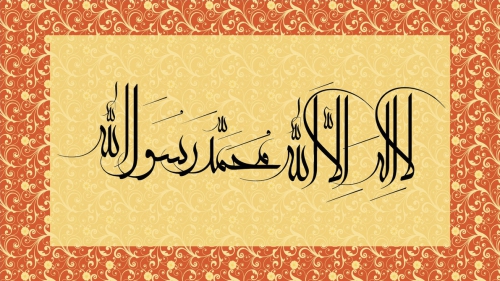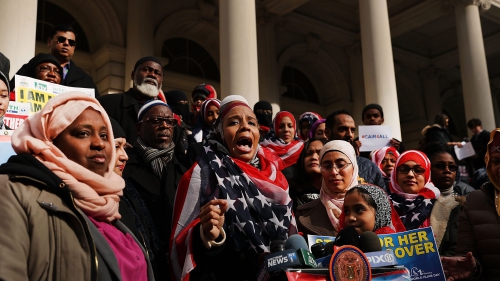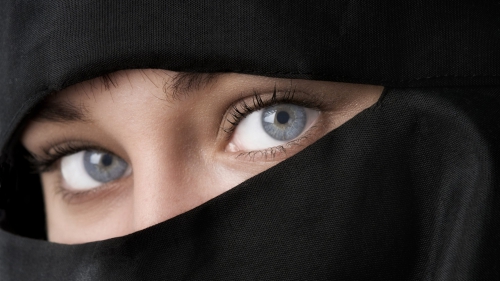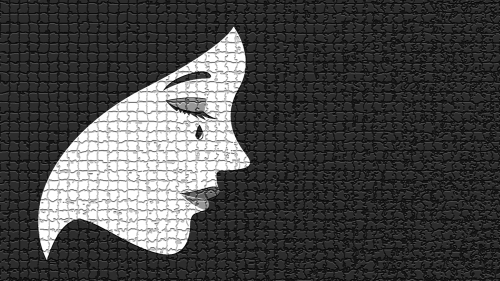Students unveil the meaning of the Muslim hijab
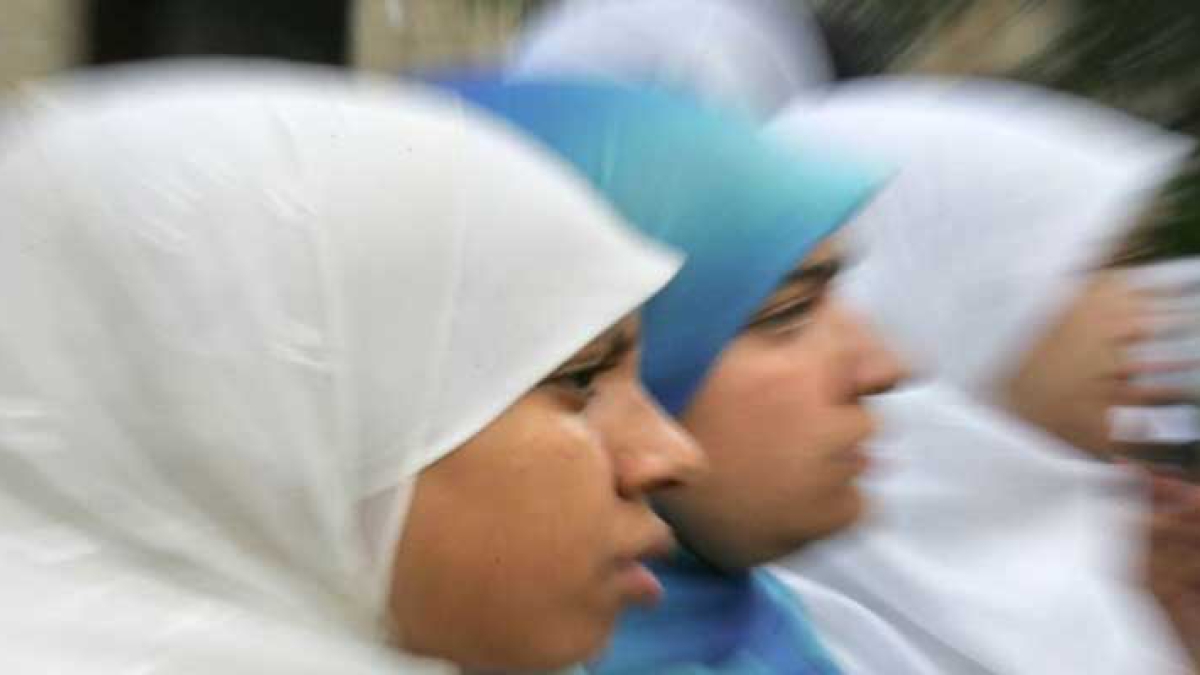
Donning a colorful scarf over her neck and hair, Kate Watkins, freshman in international studies at North Carolina State University, walked into her yoga class and quickly drew the attention of peers. As a participant in Behind the Veil, an educational event sponsored by the Muslim Student Association, Watkins and other non-Muslim students wore the hijab for a day.
"I think it's important to understand people who are different than me by walking in their shoes before I make any judgments," Watkins said.
The cultural exchange of wearing the hijab extends past the realm of apparel and covers the aspect of hijab as a lifestyle choice. As a requirement for women in the Koran, the hijab carries a spiritual significance for many young women.
A cloud of controversy has surrounded this Muslim garment and event organizers said they chose to do this exchange to demonstrate the true meaning of the hijab and to clarify common misconceptions.
"This isn't a symbol of oppression," Fatima Fareed, a freshman in elementary education, said. "As a woman I feel liberated while wearing the hijab, and there is no contradiction. It's a sign of modesty and respect and I feel empowered to do so."
The event included a panel discussion with three Muslim women-two who chose to wear the headdress and one woman who chose not to wear it yet.
"Never had I been ashamed of being Muslim," Sameen Mujtaba, a junior in polymer color chemistry said while telling her narrative of when she started wearing the hijab. "When I was younger I used to wear capris but one day I met a girl who converted to Islam wearing the hijab. It made a lasting impression on me."
There is a recommended age in Islam, at around puberty, when it's appropriate to don the hijab, which is only the headscarf-not to be confused with the burqa, which is a full-body covering. However, many young women are encouraged to take their time when considering when to put on the hijab.
"Of course, if it's forced upon you, you won't understand its importance and coercion is counterproductive," Doaa Dorgham, a junior in psychology, said. As event organizer and fellow hijabi (one who wears the hijab), Dorgham said Muslim women should only wear the hijab when they are most comfortable doing so. "It's not worth it just going through the motions. Islam doesn't just consider your actions, but also your intentions."
The theme of modesty reappeared throughout the panel discussion, and the panelists described their perspectives of modesty not just regarding physical appearance, but also decent behavior.
"When I was thinking about modesty," Mujtaba said, "I thought that someone who isn't modest is someone who's trying too hard-trying too hard to impress someone. A lot of the stuff I'm inclined to do is probably more geared to impressing someone, and I'm guilty for that. But wearing the hijab reminds me to be sincere and be myself."
Dorgham said that the hijab doesn't define her, but she rather defines herself and her hijabi lifestyle.
"I worked it to that the hijab being a part of me," Dorgham said between mediating the panel. "If someone wears a scarf, it doesn't mean that they are better than those who don't."
Iqra Chhotani, a senior in biological sciences, is of Pakistani descent and sat on the discussion panel as the non-Hijabi. Although she recounted personal conflict and self-debate about her role as a Muslim, she said she will eventually wear the scarf.
"I don't feel that I'm ready," Chhotani said. "Coming to college, and despite being a senior, I don't know everything about who I am or who I want to be. I'm taking the steps to being a better person and Muslim. When I feel like I can look at myself in the mirror and say, 'Wow, I can carry the name of being a Muslim,' and be proud about it more than I already am, that's when I can wear it."
The conversation of the significance of the hijab continued for nearly two hours. At the end the discussion was opened to broader questions not just regarding the hijab but Muslim practices and culture as well. The non-Muslim women who chose to take part in the social experiment recounted their experiences and Watkins said her view of the hijab and Islam changed.
"I think that many people get bogged down on one side of the argument," Watkins said. "It's a very beautiful expression of faith and I have learned lessons that I can apply to my Christian beliefs."
Source: Technician Online - Mark Herring
Topics: Hijab (Head Cover), Veil (Burqa), Women
Views: 8503
Related Suggestions
Head covering/Hijaab: is Islamic & is mentioned in Testaments.
Quran7:26 "O Children of Adam! We (God) have bestowed clothing upon
you to cover yourselves & as an adornment (for beauty); & the
clothing of righteousness - that is best. ". This protects woman
from harm in the world.
1-Corinthians11:6 "For if a woman does not cover her head, let her
also have her hair cut off; but if it is disgraceful for a woman to
have her hair cut off or her head shaved, let her cover her head.'
This practice was maintained among women of the Holy Land up to the
middle of the twentieth century. This is maintained among Muslims






